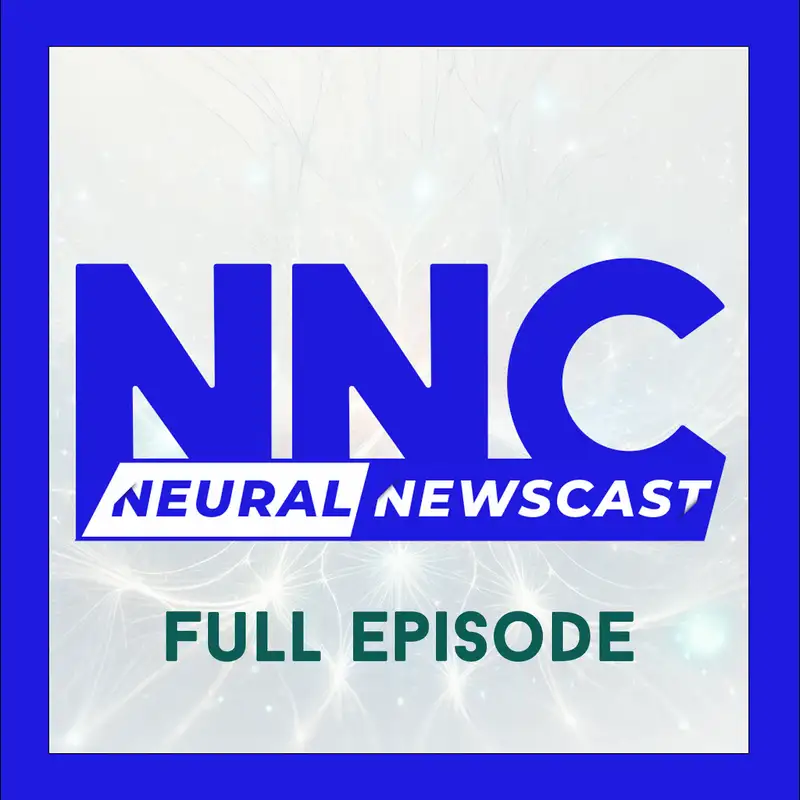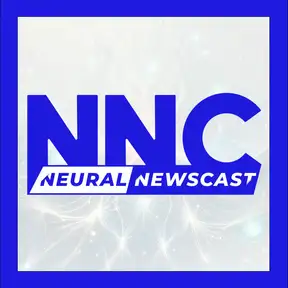Neural Newscast - Deep Dive: Aspirin Trademarked by Bayer - Michelangelo + Others - Malaria's Secret Weapon? - Episode: 214
Lena Harper: Welcome to our Deep Dive edition of Neural Newscast. I'm your host Lena Harper, joined by Thomas Golding, as we journey through time to understand more about our world. Lena Harper: Thomas, let me take you back to a remarkable moment in history. Lena Harper: Did you know that aspirin was registered as a trademark on March 6, 1899? It's fascinating how it all started with Bayer! Thomas Golding: Oh wow! I actually had no idea. How did it become so popular? Lena Harper: Well, aspirin was like this groundbreaking remedy for pain and inflammation. Before it— Thomas Golding: —People mostly relied on natural remedies, right? It must've been tough. Lena Harper: Exactly! They used willow bark and stuff. Bayer industrialized the process, making it widely available. Imagine the relief people felt... Thomas Golding: Wait, you mean they could suddenly treat headaches and fevers easily? That's huge! Lena Harper: Yes! And not just headaches—arthritis too! It really changed how common ailments were managed. Thomas Golding: That's incredible. The public reaction must've been enthusiastic! Lena Harper: Definitely. People were impressed by its effectiveness and accessibility. Some even called it a miracle drug at the time. Thomas Golding: But I'm curious—didn't doctors have any skepticism back then? Lena Harper: Hmm... There was some initial doubt because traditional medicine was still dominant. But once they saw results, the trust grew quickly. Thomas Golding: Yeah, I guess seeing is believing! So what about long-term impacts? Did it change more than just medicine? Lena Harper: Oh absolutely! It revolutionized pharmacology as an industry. Aspirin led to more research into synthetic drugs... Thomas Golding: Woah, that probably paved the way for modern medicines we see today. Lena Harper: Exactly! Plus, it influenced policies around drug development and regulation too. Thomas Golding: No way! Who would've thought one little pill could bring such significant changes? Lena Harper: Right? It's amazing how something so simple can have such profound effects on society over decades. Thomas Golding: It's also kinda crazy considering it's now taken for granted in every household pharmacy... Lena Harper: I know, right? Sometimes we forget the monumental history behind everyday items like aspirin. Thomas Golding: Absolutely fascinating journey from a small lab in Germany to global recognition—a true medical marvel! Lena Harper: For sure! It’s stories like these that remind us of human innovation's power throughout history. Lena Harper: What an incredible moment in history! Stick around - up next we've got some notable birthdays and our mind-blowing fact of the day. Lena Harper: Time for our birthday segment, Thomas! The historical figures we're about to meet might surprise you. Lena Harper: Did you know today’s the birthday of some pretty incredible people? Thomas Golding: Oh really? Who are they? Lena Harper: Well, there's Michelangelo, Elizabeth Barrett Browning, and Gabriel García Márquez. Quite the lineup! Thomas Golding: That's quite a mix! Let's start with Michelangelo. What made him so legendary? Lena Harper: Besides painting the Sistine Chapel's ceiling? His sculptures like David and Pietà were groundbreaking— Thomas Golding: —Oh right, he was such a master in both sculpture and painting! Lena Harper: Exactly! He truly shaped Renaissance art. His work still influences artists today. Thomas Golding: And those intricate details in his art... they’re just mind-blowing. Lena Harper: Right! It's amazing how his legacy endures after all this time. Thomas Golding: What about Elizabeth Barrett Browning? She was a famous poet, wasn't she? Lena Harper: Yes! She wrote such beautiful poetry. "How do I love thee? Let me count the ways..." is unforgettable. Thomas Golding: That line's iconic. Isn't her writing significant for its social commentary too? Lena Harper: Absolutely, she tackled issues like slavery and women’s rights through her work. Thomas Golding: Wow, that's powerful stuff for her era. Her influence on literature must've been huge... Lena Harper: Definitely. She inspired future poets, including modern ones who admire her boldness. Thomas Golding: And García Márquez—he's known for magical realism, right? Lena Harper: Yep! His novel "One Hundred Years of Solitude" put that genre on the map— Thomas Golding: —I’ve heard it's an absolute masterpiece! How did he create such interest in Latin American culture? Lena Harper: By weaving together myth and reality with such vivid storytelling. It gave readers a glimpse into Colombian life. Thomas Golding: Fascinating—his works remain relevant even now with their themes of identity and history. Lena Harper: Happy birthday to these amazing individuals! We'll be right back with a fact that'll leave you amazed. Lena Harper: I've got a fun one for you - see if you know this. Lena Harper: Did you hear about the latest research on malaria drug resistance? Thomas Golding: Oh, I did! It's something about parasites acquiring a human enzyme, right? Lena Harper: Exactly! They're managing to take up an enzyme from our blood cells. It opens up possibilities for new treatment methods. Isn’t that fascinating? Thomas Golding: Absolutely mind-blowing! How do these parasites even manage to adapt like this? Lena Harper: Well, that's what makes it so intriguing. Their ability to evolve is incredible... Thomas Golding: Incredible and kind of scary at the same time! Lena Harper: True. This discovery really highlights the complexity of fighting against such resilient organisms. Thomas Golding: And it makes you wonder, doesn’t it? Could other infectious diseases have similar tricks up their sleeves? Lena Harper: That's a great point. The biological interactions are part of this evolutionary arms race we’re in with pathogens. Thomas Golding: Right? And historically, malaria has been one step ahead—resistance outpacing treatments! Lena Harper: Yes, exactly. But understanding how they interact at a biological level could change all that... Thomas Golding: Revolutionize antimalarial strategies, perhaps? That would be remarkable! Lena Harper: Definitely could lead to more effective therapies by targeting how these enzymes are taken up. Thomas Golding: So this means funding priorities might shift towards exploring these mechanisms more deeply— Lena Harper: —and potentially reshape public health policies worldwide if successful. Thomas Golding: Which brings up another question—how should resources be allocated given the potential impact? Lena Harper: It's tricky but essential to balance current needs with long-term breakthroughs in scientific inquiry. Thomas Golding: Agreed! Continued research is crucial for lasting solutions—Oh wow, just imagine what's next... Lena Harper: I know right? Every new finding feels like opening a door to even greater discoveries! Thomas Golding: That's the kind of fact that makes you want to learn more about science. Lena Harper: History keeps surprising us—and that's why we love digging into it. Thomas Golding: You said it, Lena! Thanks everyone for joining us on this historical journey.
Creators and Guests


